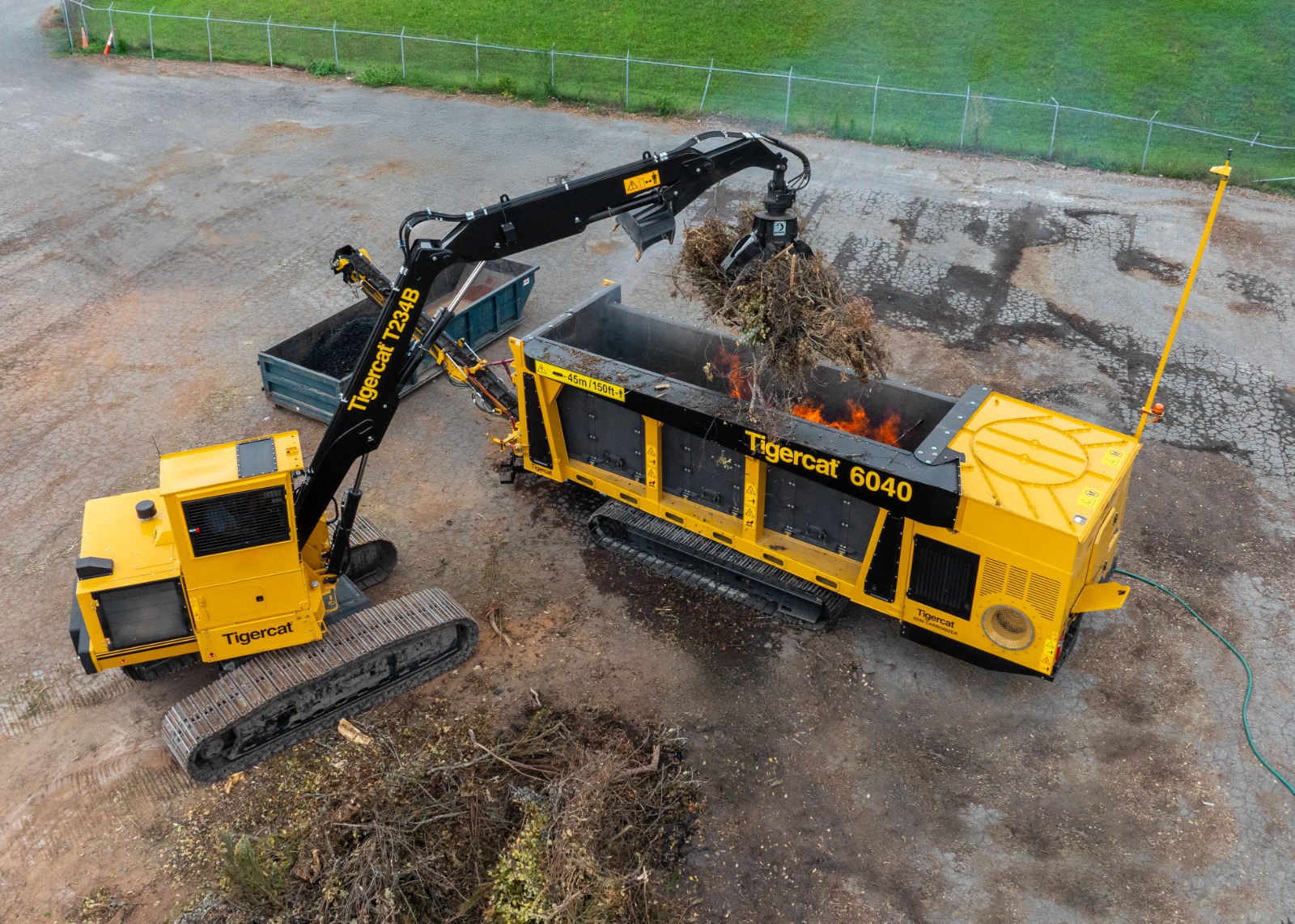A deep mid- and long-term vision of productive forestry activities was the focus of the second "Biobío 2050" meeting, organized by Diario La Tribuna, which brought together experts, authorities, academics, and representatives from the local public and private sectors yesterday.
During the event, held at the Club de La Unión, speakers and panelists highlighted the importance of proper forest management, incentives for plantations, and promoting wood construction as key factors in mitigating climate change, contributing to Chile's international environmental commitments.
The first presentation of the day was led by Sandra Gacitúa, executive director of the Forestry Institute (INFOR), an agency under the Ministry of Agriculture.
The Ph.D. in Forestry Sciences from the University of Concepción warned that despite the benefits of forests in combating climate change, their decline due to fossil fuel use and wildfires requires exploring other mitigation strategies, such as promoting wood construction, encouraging forest plantations, and using technology to improve production.
She emphasized that "forests contribute to the economy and mitigate climate change by capturing carbon, a greenhouse gas." "Carbon emissions have been rising since 1990, and forests and the forestry sector are the only carbon-capturing sector."
WOOD IS THE ONLY MATERIAL THAT CAPTURES CARBON
The INFOR spokesperson also noted that the greenhouse effect has brought "climate phenomena that are already occurring," reaffirming: "How do we mitigate environmental changes? A nature-based solution is building with wood."
Sandra Gacitúa stressed that "wood is the only material that would allow us to mitigate climate change. Forest management and promotion, along with addressing the housing deficit, require developing a sustainable forestry model."
The executive director of the institute, active in the country for 64 years, stated that their research focuses on people.
"We have increasingly generated information for people and decision-makers, influencing various public policies under development," she explained.
Gacitúa added that INFOR works "with a focus on international commitments: meeting carbon capture goals, land-use planning, responsible native forest management, and sustainable forest management."
TECHNOLOGY TO MITIGATE CLIMATE CHANGE
The executive director highlighted that their work enables progress aligned with current times, related to sustainable forest management and updated technologies for forestry development and environmental care.
"INFOR has technological infrastructure aimed at developing solutions that mitigate climate change."
Sandra Gacitúa noted that INFOR also collaborates with other public and private institutions, including ministries, trade associations, and NGOs.
The Forestry Institute produces sectoral statistical reports: "records of native forest areas, greenhouse gas reports, and projections of future wood availability." She noted that recent wood projections have declined in percentage over the years.
The institute's representative clarified that they are promoting "agroforestry systems, a tool for climate change adaptation. These are solutions from development institutes focused on restoring degraded soils."
AGREEMENTS FOR A SUSTAINABLE AND RESILIENT MODEL
Regarding SMEs, she shared that INFOR has developed "free technological support for forestry SMEs and is working to transfer this technology to help improve their production."
She also recalled their contribution to international agreements: "such as the Paris Agreement, related to carbon neutrality."
She concluded by calling for agreements among sector stakeholders to achieve a sustainable forestry development model and to promote wood use, fostering resilient ecosystems and collaborative efforts against climate change.
IMPORTANCE OF THE FORESTRY SECTOR FOR REGIONS
The second speaker was Rodrigo O’Ryan Blaitt, president of the Chilean Wood Corporation (Corma), who reinforced the sector's significant contribution to the Gross Domestic Product (GDP) of regions like ours and its economic returns, improving quality of life and restoring degraded soils.
The trade leader emphasized the forestry sector's importance in daily life, providing solutions beyond forests: "We support people day to day."
He noted that the forestry sector has a deeply rooted presence in Chile's regions: "We are the backbone of rural areas. We represent 1.3% of the national GDP and 14% in regions like Ñuble and La Araucanía."
"For every peso produced in forestry, 1.02 pesos are generated in the broader community. Returns benefit commerce, hotels, airlines, kiosks, and transporters," he explained.
ENVIRONMENTAL AND ECONOMIC BENEFITS FOR THE COMMUNITY
O’Ryan added that forest plantations can be used in textiles, wood construction, and producing chemicals, biofuels, and energy. "Biomass replaces fossil fuels and reduces wildfire risks, where efficiency and logistics are crucial."
The Corma president urged recognizing how companies "share forestry prosperity with communities, working in territories and improving their quality of life."
He detailed that member companies have initiatives supporting rural communities where they operate, "working with and respecting nature."
SOIL RECOVERY AND JOB CREATION FROM FORESTS
Rodrigo O’Ryan Blaitt highlighted that "biomass generates 15 times more jobs per energy unit. Properly used and standardized biofuels reduce pollution."
"The forestry sector emerged to restore eroded soils and has succeeded, enabling vegetation recovery. Many of these soils are now suitable for agriculture," he explained regarding the industry's ecosystem service.
The Corma president noted that the new National Forestry Service (Sernafor), replacing Conaf, shows legislative support for promoting afforestation.
The trade spokesperson argued that "forestry regions should be proud and thanked. Continuing the current system risks ecosystem sustainability."
"A systemic effort by all stakeholders can reverse this." O’Ryan added that a "nature-based bioeconomy requires security."
NEED FOR SECURITY TO INVEST IN FORESTS
The Corma representative urged the state to "fulfill its role in ensuring the rule of law and peaceful living, or none of this will be possible, even economically."
"We’ve seen investments stall due to years-long project delays. We need regulations that foster sustainable development and allow operations for more forests," he urged.
Rodrigo O’Ryan Blaitt also called for recognizing the sector's value, strengthening public-private interaction. "We must look to new markets," he added. Logistically, he stressed decentralizing the sector from Biobío, with a port network for exports, integrating road and rail systems.
After the presentations, a discussion forum included Conaf’s regional director, Esteban Krause, and Corma Biobío-Ñuble’s regional manager, Margarita Celis, who explored topics like Sernafor’s new forestry framework and sector challenges in raising public awareness of its broader contributions.
Source:La Tribuna







Comments (0)
No comments yet. Be the first to comment!
Leave a comment